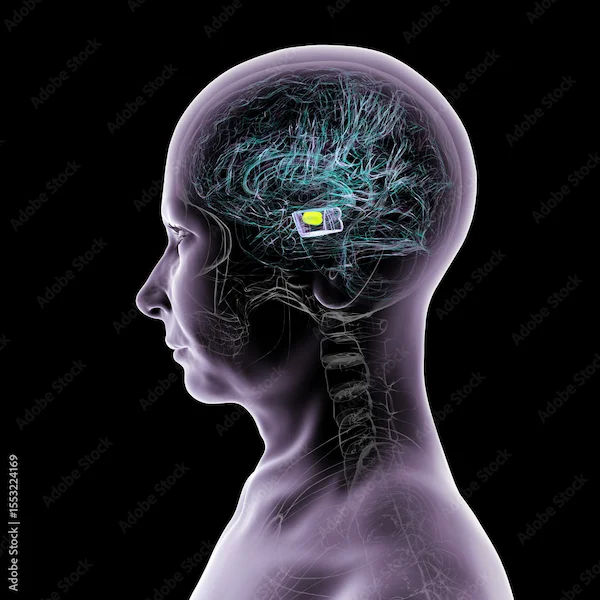Effective Management of Epilepsy Approaches
Discover effective approaches for managing epilepsy, including medication, lifestyle changes, seizure tracking, and surgical options. Learn how personalized care can improve quality of life for people living with epilepsy.

Written by Dr. J T Hema Pratima
Reviewed by Dr. Rohinipriyanka Pondugula MBBS
Last updated on 28th Aug, 2025

Introduction
Epilepsy is a neurological condition that affects millions of people worldwide. If you or a loved one has been diagnosed with epilepsy, it’s natural to feel concerned. However, with the right approach, epilepsy can be managed effectively, allowing individuals to lead fulfilling lives. This guide will help you understand epilepsy, its symptoms, causes, and most importantly, how to manage it with medical and lifestyle support.
Understanding Epilepsy
Epilepsy is a chronic disorder characterized by recurrent seizures—sudden, uncontrolled electrical disturbances in the brain. These seizures can vary in intensity, from brief lapses in awareness to full-body convulsions.
Common Symptoms of Epilepsy
Seizure symptoms can vary depending on which part of the brain is affected. Some common signs include:
Temporary confusion
Staring spells (absence seizures)
Uncontrollable jerking movements
Loss of consciousness
Fear, anxiety, or déjà vu sensations
Not all seizures are the same, and symptoms depend on the type of seizure a person experiences.
What Causes Epilepsy?
In many cases, the exact cause is unknown, but some common triggers include:
Genetic factors (family history of epilepsy)
Head injuries (from accidents or trauma)
Brain infections (meningitis, encephalitis)
Stroke or brain tumors
Developmental disorders (like autism or neurofibromatosis)
Consult Top Specialists for Personalised Tips
Medical Management of Epilepsy
The primary treatment for epilepsy involves anti-seizure medications (AEDs), which help control seizures in most people. Here’s what you should know:
1. Medications
Doctors prescribe AEDs based on seizure type and individual health.
It may take time to find the right medication and dosage.
Never stop taking medication without consulting a doctor—sudden withdrawal can trigger seizures.
2. Surgical Options
For those whose seizures don’t respond to medication, surgery may be an option. Procedures include:
Resective surgery (removing the part of the brain causing seizures).
Vagus Nerve Stimulation (VNS) (a device implanted to reduce seizures).
3. Ketogenic Diet
A high-fat, low-carb diet (under medical supervision) has been found effective, especially in children with drug-resistant epilepsy.
Lifestyle Tips for Managing Epilepsy
Beyond medical treatment, certain lifestyle changes can help reduce seizure frequency and improve overall well-being.
1. Maintain a Regular Sleep Schedule
Lack of sleep can trigger seizures. Aim for 7-9 hours of quality sleep each night.
2. Manage Stress
Stress is a common seizure trigger. Try relaxation techniques like:
Deep breathing exercises
Yoga or meditation
Regular physical activity (consult your doctor before starting new exercises).
3. Avoid Known Triggers
Flashing lights (photosensitive epilepsy)
Alcohol and recreational drugs (can interfere with medications)
Skipping meals (low blood sugar may provoke seizures)
4. Stay Hydrated and Eat a Balanced Diet
Dehydration can sometimes trigger seizures. Drink enough water.
Include magnesium-rich foods (nuts, leafy greens) and vitamin B6 (bananas, chickpeas) in your diet.
5. Safety Precautions
Avoid swimming alone.
Use caution with hot surfaces (cooking, bathing).
Wear a medical ID bracelet to alert others in case of a seizure.
When to Seek Emergency Help
While most seizures end on their own, seek immediate medical attention if:
A seizure lasts more than 5 minutes.
A second seizure occurs right after the first.
The person has difficulty breathing or remains unconscious.
Support and Resources
Living with epilepsy can be challenging, but you’re not alone. Support groups, counseling, and educational resources can help.
How Apollo 24|7 Can Help
If you or a loved one is dealing with epilepsy, Apollo 24|7 offers:
Expert neurologist consultations (online or in-person).
Diagnostic tests (EEG, MRI) for accurate diagnosis.
Personalized treatment plans.
Book a consultation today through the Apollo 24|7 app or website to get the right care and support.
Conclusion
Epilepsy is a manageable condition with the right treatment and lifestyle adjustments. By working closely with your doctor, staying informed, and making healthy choices, you can reduce seizures and improve your quality of life.
Consult Top Specialists
Consult Top Specialists for Personalised Tips

Dr. Gunashree V L
General Physician/ Internal Medicine Specialist
3 Years • MBBS
Bengaluru
Apollo Clinic, JP nagar, Bengaluru

Dr. Anand Ravi
General Physician
2 Years • MBBS
Bengaluru
PRESTIGE SHANTHINIKETAN - SOCIETY CLINIC, Bengaluru

Dr Syed Mateen Pasha
General Physician
2 Years • MBBS
Bengaluru
PRESTIGE SHANTHINIKETAN - SOCIETY CLINIC, Bengaluru

Dr Suseela
General Physician
5 Years • MBBS
Bengaluru
Apollo Medical Center, Marathahalli, Bengaluru

Dr. Avinash Pasuparthy
General Practitioner
5 Years • MBBS
Visakhapatnam
Apollo Clinic Vizag, Visakhapatnam
Consult Top Specialists

Dr. Gunashree V L
General Physician/ Internal Medicine Specialist
3 Years • MBBS
Bengaluru
Apollo Clinic, JP nagar, Bengaluru

Dr. Anand Ravi
General Physician
2 Years • MBBS
Bengaluru
PRESTIGE SHANTHINIKETAN - SOCIETY CLINIC, Bengaluru

Dr Syed Mateen Pasha
General Physician
2 Years • MBBS
Bengaluru
PRESTIGE SHANTHINIKETAN - SOCIETY CLINIC, Bengaluru

Dr Suseela
General Physician
5 Years • MBBS
Bengaluru
Apollo Medical Center, Marathahalli, Bengaluru

Dr. Avinash Pasuparthy
General Practitioner
5 Years • MBBS
Visakhapatnam
Apollo Clinic Vizag, Visakhapatnam




